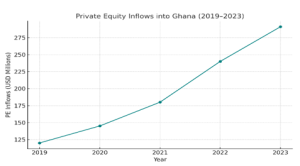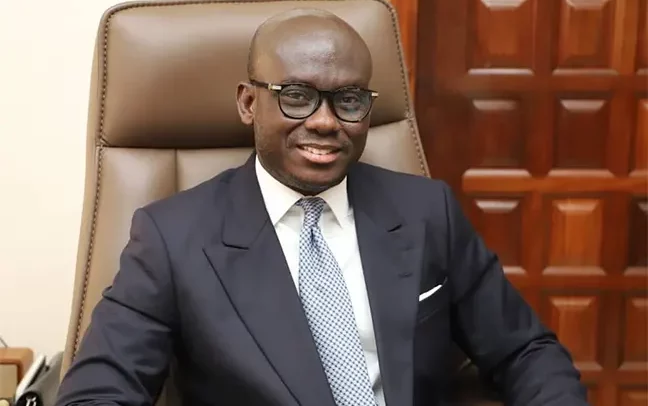
By Joshua Worlasi AMLANU
The Bank of Ghana has intensified its supervision of environmental, social and governance (ESG) risks in the financial sector with a renewed focus on the construction industry, citing its exposure to climate and sustainability-related risks.
Speaking at a stakeholder workshop in Accra on Monday, the Bank of Ghana second Deputy Governor , Matilda Asante-Asiedu, said the construction sector presents complex and material ESG risks that can no longer be treated as peripheral to banking operations.
She warned that failing to account for such risks could lead to financial losses, regulatory penalties and reputational damage for lenders.
“ESG is not a PR exercise or good-feeling reporting,” she noted. “These considerations must become central to how banks assess projects and manage credit exposure.”
The central bank has begun conducting sector-specific reviews of ESG risks, starting with manufacturing and agriculture. Construction marks the series’ third review, underscoring the industry’s significance to Ghana’s economy and its environmental footprint.
Mrs. Asante-Asiedu pointed to rising temperatures, erratic weather patterns and delays in environmental compliance as examples of how climate factors can derail construction projects and undermine loan performance. She said banks must now proactively integrate ESG criteria into project due diligence and portfolio monitoring, rather than treating such risks as afterthoughts.
The Bank of Ghana’s sustainability roadmap dates back to 2015, when it established the Sustainable Banking Committee. This culminated in the 2019 adoption of the Ghana Sustainable Banking Principles, which have since been operationalised through reporting templates and compliance tracking. By March 2025, average ESG compliance among commercial banks had reached 73.6 percent – up from 42.2 percent in 2021.
The central bank has also issued a Climate-Related Financial Risk Directive and partnered with international institutions such as the Network for Greening the Financial System (NGFS), IFC and Ghana Meteorological Agency. A dedicated Climate and Sustainability Office was created in 2023 to coordinate these efforts.
John Awuah, CEO-Ghana Association of Banks, said the construction sector contributes over 14 percent to GDP but remains resource-intensive and environmentally risky. He acknowledged the sector’s challenges – from greenhouse gas emissions and water use to poor waste management – but stressed that banks must not retreat from financing the industry.
“ESG must become the new language of risk and new logic of value creation,” Mr. Awuah said. However, he highlighted that access to affordable capital remains a constraint, particularly for SMEs.
He called on development partners to offer credit guarantees, concessional finance and technical assistance to help banks fund ESG-aligned construction projects.
Preliminary assessments by the association indicate that while banks are making progress on ESG integration, many businesses in the construction sector remain poorly aligned with sustainability standards. Without targetted capacity-building for developers and contractors, banks may struggle to deploy ESG-linked financial instruments effectively.
The workshop forms part of the Integrated Environmental, Social and Governance (IESG) Programme for Ghana, supported by the Swiss State Secretariat for Economic Affairs. It aims to equip banking professionals with tools such as the IFC Performance Standards and sector-specific screening methods to improve ESG risk management.
The Bank of Ghana says it will continue sector-specific engagements to strengthen the financial system’s ability to assess and mitigate sustainability risks across all major sectors.
The post BoG deepens ESG oversight with focus on construction sector appeared first on The Business & Financial Times.
Read Full Story


















Facebook
Twitter
Pinterest
Instagram
Google+
YouTube
LinkedIn
RSS